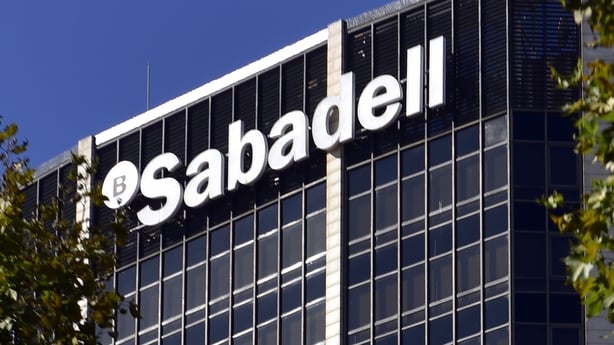Spain's government opposes BBVA's hostile takeover bid for its smaller rival Sabadell, Economy Minister Carlos Cuerpo said today.
Under Spanish law, the Economy Ministry has the power to block any merger or acquisition of a bank.
The Spanish government has six months to decide after consulting with regulators including the Bank of Spain and the securities regulator CNMV.
BBVA, Spain's second-largest bank, today presented a €12.23 billion takeover bid directly to Sabadell's shareholders after its target's board earlier this week rejected the proposal on the same terms.
Cuerpo said the government considers the combination of the two banks would have potentially harmful effects on the Spanish financial system and would impact jobs and customers.
"We are right now, both in form and substance, rejecting this operation as a consequence of those potential negative effects it could have," Cuerpo said in an interview on TVE.
"We have the last word when it comes to authorizing the merger by absorption by BBVA with Sabadell and that is where we would come in, of course, to make this assessment," he added.
BBVA Chairman Carlos Torres said today the combined entity would boost the Spanish economy by generating a higher tax base and creating a stronger player in Europe.
"I am confident that the government will appreciate the value of the transaction," Torres said in a call with investors.
Catalonia, the Spanish region that would be most affected by the takeover given a high number of overlapping branches in the region, will hold regional elections on Sunday.
Unions and some local parties have already expressed concerns about the impact any merger would have in terms of job losses and branch closures in the region.
Labour union CCOO said a hostile takeover generates more concerns than the previous proposal and called on regulators to apply measures that ensure there is no monopoly.

Should the takeover go ahead, CCOO said it would "demand even more firmly that this operation be carried out with specific labour guarantees agreed in writing, while we call on the supervisors and regulators to move from statements to facts, adopting present and future antitrust measures," it said in a statement.
Carles Puigdemont of separatist party Junts, who is running for president of Catalonia, said the takeover must be stopped.
"For some time now there has been a strategy to liquidate the Catalan banking sector, to the detriment of users and the country," Puigdemont said on X.
Sabadell and CaixaBank, both founded in Catalonia, moved their legal headquarters out of the region in 2017 after a failed attempt led by Puigdemont to separate it from the rest of Spain.
The two banks feared the secession drive would leave Catalonia outside the European Union and its protections.
Hostile takeover bids are rare in European banking. A recent example is Intesa's successful takeover of UBI Banca in 2020.
BBVA, Spain's second-biggest bank by market value after Santander, offered an exchange ratio of one newly issued BBVA share for every 4.83 Sabadell shares, a premium of 30% over April 29 closing prices.
Spanish banks have been looking for ways to increase revenue as a boost from high interest rates begins to fade.
Buying Sabadell would allow BBVA to diversify from Mexico, its main market, and other developing economies such as Turkey and South America and focus on its domestic market.
BBVA's chief executive Onur Genc said, "all stakeholders will benefit from this operation".
"Banco Sabadell has done an excellent job, with remarkable progress in recent years, and now its shareholders can join an entity with an unparalleled combination of growth and profitability in Europe," Genc said.
The deal, which BBVA estimates could bring cost savings of €850m before taxes, would give Sabadell shareholders a 16% stake in the combined lender.
BBVA aims to create a lender with more than 100 million customers globally and assets exceeding €1 trillion, second only to Santander among Spanish banks.
The combined entity would also overtake Caixabank as Spain's biggest domestic lender with over €625 billion in assets in the country, compared with Caixabank's just over €574 billion.

